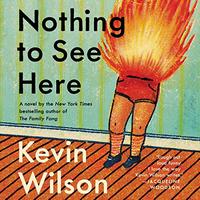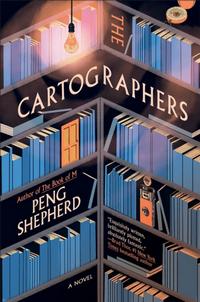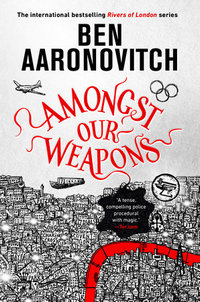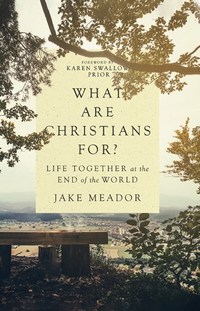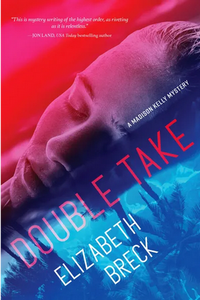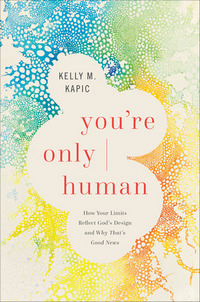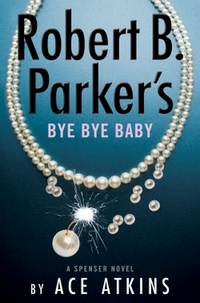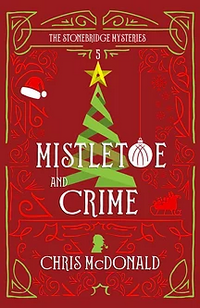by Ace Atkins
DETAILS:
Series: Spenser, #50
Publisher: G.P. Putnam's Sons
Publication Date: January 11, 2022
Format: Hardcover
Length: 304 pg.
Read Date: January 19, 2022


Over the years, many things have changed about my profession. I no longer kept an actual landline on my desk. Since no one had called it since a little past the first of the millennium, I discontinued the service.
My superhuman ability to scroll through microfilm was no longer in demand. Almost anything I needed to look up, from old news stories, to criminal histories, to vehicle records, could be found online. Although I missed my visits to the Boston Public Library, I’d accepted the long, boring hours at my desk, thinking about how many old cases I could’ve solved with Google.
What’s Bye Bye Baby About?
Spenser’s hired by the campaign manager for a Congresswoman during her first re-election bid. Carolina Garcia-Ramirez, aka CGR, has had enemies since she first announced her candidacy (despite its reputation, Boston has a fair share of people antagonistic to a progressive woman politician—especially if she’s a minority), but lately, the threats are more specific and indicate inside information. Despite the Congresswoman’s resistance to the idea, Spenser joins her team as both a bodyguard and to investigate these threats.
Suspects range from any number of racist and alt-right groups, lone individuals, and someone related to the campaign of her opponent—the same man she unseated during the last primary.
It’s not long before Spenser runs into FBI agents, who have a different agenda regarding the Garcia-Ramirez. Spenser wants to stop whoever’s threatening her—as soon as possible. The FBI is more concerned with leveraging these threats into making a larger case against extremists in the region. They do agree, however, that the threats are real and the Congresswoman is in real danger.
The Hawk Storyline
In exchange for helping Spender on CGR-Duty, Hawk asks him to try to track down a woman from his past. Hawk rarely (that we see) asks Spenser for help with something in exchange for his services, so that was noteworthy in and of itself. But for him to ask for this kind of favor? Double strange.
Sadly, most of the developments in this story happen off-screen. And while there are plenty of surprises in it, because it’s so off-screen, it’s too easy to overlook what’s going on. (I honestly only remembered to write something about it just before I hit “Schedule” on this post)
Too Political?
There’s a lot of talk about Atkins making this too political (not the first time it’s been said about his Spenser novels). I can only imagine this was written by people who skipped a handful of Parker’s novels, primarily Looking for Rachel Wallace.
I say that not just because it was Parker at his (arguably) most political,* but this novel was clearly influenced by Looking for Rachel Wallace—I made note of the resemblance on page 18 (but I’d wondered about it before then), and it only became clearer as the book went on.
* Double Deuce, Thin Air, and Pale Kings and Princes jumped to mind as clearly political, too. If I let myself spend time thinking about it, I’d have no problem coming up with more.
Yes, Carolina Garcia-Ramirez/CGR, is obviously modeled on Alexandria Ocasio-Cortez/AOC. The crimes planned and attempted have similarly obvious recent real-world parallels. But this is not a book that only partisans can enjoy, if they can put up with Spenser pushing back on the stances of his Republican client in The Widening Gyre*, they can put up with this. Come to think of it, The Widening Gyre is pretty important for the background to this book.
* Oh, look, another one!
Also, if taking a strong anti-racist stance is going to get someone who’s a fan of Hawk, Bobby Horse, Chollo, and Sixkill decrying the political stance. Maybe they haven’t been paying attention to the series.
Bye Bye, Atkins
“Have you found any suspects?” Susan said.
“Nope.”
“Got any leads?” she said.
“Zip.”
“Planning on doing more than just poking around and annoying people?”
“Why mess with a winning formula?”
Alas, that’s exactly what’s going to happen—the winning formula of Ace Atkins donning the Parker mantle for this series is no more, and Mike Lupica will be taking over.
Atkins is moving on so he can write some projects of his own that he doesn’t have time for while handling Spenser. That’s absolutely understandable, and I look forward to seeing what he’s going to do. But I’m going to miss him with these characters and series—I remember being about a quarter of the way through Lullaby and breathing a sigh of relief—not only was he as good as Parker, he was as good as Parker in his prime. I thought I’d be saying goodbye to a very old friend after Parker died, and Atkins let me hang on a little longer.
I’m a little worried about the series. Lupica’s doing a good job with Sunny Randall (his last one is forthcoming this year), and isn’t bad with the Jesse Stone books. But I doubt he’s going to be as good as Atkins with Spenser. I’m hoping to eat my words, though.
So, what did I think about Bye Bye Baby?
“You think these threats could be legitimate?”
“Maybe” [Wayne Cosgrove] said. “Hell, It only takes one person. It’s just a goddamn mess to see through all the noise and bluster these days. Everyone is angry. Everyone has an ax to grind. At least in the old days, a nut had to roll a sheet of paper into the typewriter or paste together some jumbled clippings from a magazine. But now all they have to do is use a dummy email account and be done.”
“The perils of sleuthing in the twenty-first century.”
It’s a little hard separating my feelings and thoughts about this book from Atkins’ entire run with this being his last, but I’m going to try.
I don’t think this was his strongest outing—nor was it his weakest—but it was as fun as you could want. Spenser’s wit was on full power, as was his gift for observation. The mid-novel fight scene was pretty good–as were the other action scenes. The campaign staff were believable and interesting—as was CGR (although her boyfriend got on my nerves, I think by design). A lot of that story was predictable, but Atkins told it well enough that you didn’t mind—there are only so many things you can do in a story about bodyguarding someone, after all. There were also plenty of unexpected things along the way, so even if the destination was clear all along, Atkins’s route to it wasn’t.
The only sour note for me was the investigation for Hawk—it felt like Atkins had a good idea at the beginning, and just didn’t have the time to develop it as he should’ve. I do wonder if he was just setting something up for Lupica. It’s the only thing that makes sense to me.
Atkins brought out all of the major characters from his run, and many from Parker’s, for one last ride—it was great to see them before the hand-off. Atkins even made one major character move (one might say it was overdue and something that Parker should’ve done).
This would work as a jumping-on point to the series—although I can’t imagine here in book 50 that there’s anyone who hasn’t tried the series but is considering it. But more importantly, it’s one for the fans written by a fellow fan, and that audience should be more than satisfied with it.

This post contains an affiliate link. If you purchase from it, I will get a small commission at no additional cost to you. As always, opinions are my own.

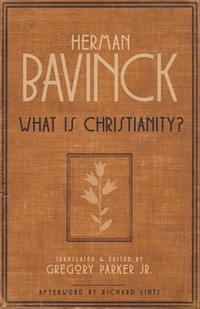 What is Christianity?
What is Christianity?

![]()



